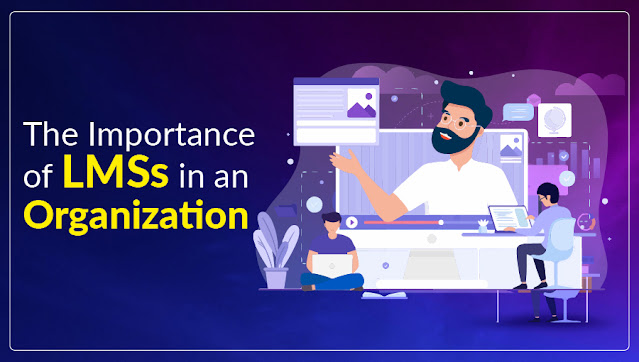The Importance of LMSs in an Organization
Finally, an online training tool that learners, trainers, and administrators will appreciate.
Software is available in minutes, free and without installation, compatible with all devices, with no training required, and packed with advanced features. So, start creating courses with the new LMS.
What is LMS?
The term "LMS" stands for Learning Management System. This program is used to create, manage, and deliver e-learning content. Organizations use LMSs and related software to conduct online learning.
It is an excellent tool for training current or new employees on your internal procedures.
Learning: Learn because you employ it to provide courses or training programs.
Management: Management, because it assists you in organizing these courses (creating, modifying, assigning to students, etc.)
System: System It's a word that means "software." A learning management system (LMS) is a computer program.
How does it assist learners, instructors, and administrators?
Learners: It facilitates the monitoring of learner development and performance in the course. It has a function that keeps track of their records, grades, submissions, and participation in the course. Similarly, it gathers vital information and documents shared by students on the platform.
Instructors: The LMS allows instructors to produce course content in a variety of formats. Due to its visual and audio content, the course is more appealing to learners. LMSs also enable you to combine resources from different sources and create e-courses in different forms.
Administrators: Administering is simple but extensive. It acts as the company's structure and can be significant in recruitment, skill-building, associate training, leadership training, mentoring, and many more.
Why does your organization require an LMS?
The LMS does not require a dedicated mentoring department. A strong LMS, with a collaborative learning tool, makes it simple for anybody in the organization to create and distribute courses.
An LMS is by far the most effective approach to managing an online learning program, both for administrators and learners.
Learning managers may swiftly create whole courses with an LMS without the assistance of a developer.
An LMS improves the impact and accessibility of courses. Employees can access their learning materials from any location using an LMS, allowing them to learn on their own time and at their speed.
Administrators can track completion rates to ensure that staff is using the tools available to them.
The Advantages of a Learning Management System
Employee satisfaction has increased: Online learning programs are more convenient and fun than protracted training lectures or all-day workshops.
Improved employee retention: 94 percent of employees said they would stay with a company that invested in their growth. Allowing employees to learn new skills and grow on the job is an excellent way to demonstrate your dedication to them.
Enhanced knowledge retention: Employees have more knowledge when they learn online. They can master complex ideas at their own pace or go back and revisit previous sessions as needed.
L & D costs have been reduced: An LMS is an asset for your company's future learning. While it may sound expensive at first, providing online courses that can be repeated as often as necessary is significantly less expensive than running in-person courses.
Improved ROI on training programs: An LMS provides you with the tools you need to assess the effectiveness of various educational courses. Adapt your programs for maximum return on investment.
When deciding which LMS solution is best for you, seek out a vendor who will be your LMS partner. Milkyway Geeks is a reliable solution provider that will assist you in setting up your LMSs at a reasonable cost.




Comments
Post a Comment